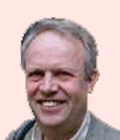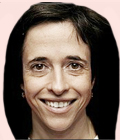Citizens’ Observatories Infrastructures for Citizen Science and Crowd Sourcing - concepts, methodologies, apps and sensors with INSPIRE in mind
Friday, 29 May 2015, 1100 – 1700 hrs
WORKSHOP DESCRIPTION
New and sometimes unique sources of geographic information have recently become available in the form of user-generated Web content. The integration and application of these sources, often termed volunteered geographic information (VGI) or geographic information crowdsourcing is generating a new multidisciplinary research area involving diversified topics and multiple spatial and temporal scales. COST initiatives, such as ENERGIC (IC1203) in which the workshop facilitators are involved aim to contribute to this research. Issues related to INSPIRE will be considered, namely the use of VGI in the SDI context. The Citizens' Observatories Projects, Citclops, CITI-SENSE, COBWEB, Omniscientis and WeSenseIt, collectively aim at developing novel technologies and applications in the domain of Earth Observation, trying to exploit the capabilities offered by portable devices (smartphones, tablets or microsensors), to enable an effective participation by citizens in environmental stewardship based on broad stakeholder and user involvement in support of both community and policy priorities. Representatives of some of these projects and activities to present their current work and results, as a basis for discussions in workshop sessions with the workshop participants on important challenges and solutions.
Learning objectives can thus be described as:
- To be able to characterize the key aspects of VGI, its advantages and existing challenges based on present knowledge and experience;
- To get acquainted with the different type of VGI initiatives and Citizens' Observatories Projects and their characteristics that involves novel processes for producing geographic information and environmental data exploitable with many different purposes;
- To obtain an overview of on-going VGI/crowdsourcing initiative;
- To get some skills through hands-on outdoor session;
- To collect, analyse and share the data they have collected through appropriate infrastructure services and apps.
TARGET AUDIENCE
The target audience includes the public authorities involved in data production or in the development of SDI, people involved in ONG initiatives (e.g. citizenship, community mapping, environmental monitoring), young researchers and doctoral students, academia, other organizations which can benefit from the VGI applications’ results (e.g. participatory mapping for development-oriented interventions), citizens (user generated content is an enabling technology to exchange information with others), teachers (VGI is a teaching tool and source of information), Web operators, IT companies and public institutions that, for different purposes, make use of geographic information.
WORKSHOP REQUIREMENTS
Instructions for participants: laptop, smartphone (iPhone or Android), tablet.
Pre-workshop preparation: pre-installation of mobile apps for VGI/Crowdsourcing (e.g. OSM-Vespucci, GeoWiki, myObservatory, Cobweb on biosphere crowd sourcing, CitClops on water quality and colour, WeSenseIt on water quality and flooding and CITI-SENSE on air quality and UV and noise/public place sensing).

DG Research
& Innovation

AquaGIS Project & ENERGIC Project
Portugal

SINTEF/ CITI-SENSE project
Norway

Directorate General for Territorial Development
ENERGIC project
Portugal

Citclops project
Spain

WeSenseIt project, wesenseit.eu
United Kingdom

CobWeb project
Belgium

Editor-in-chief International Journal for Spatial Data Infrastructure Research (IJSDIR)
Italy

Center for Environmental and Sustainability Research (CENSE)
ENERGIC project
Portugal

University of Berkeley
United States

Ateknea
Spain